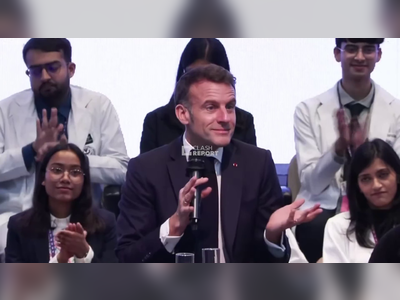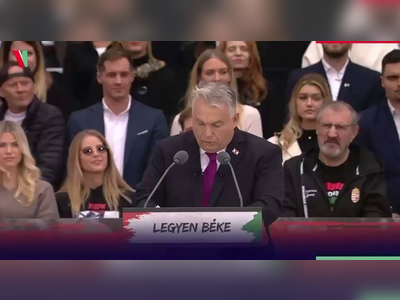
Government's communication shows no result, Hungary's economy is plummeting
According to 24.hu, the Orbán administration tried to sell Hungary as one of the most successful European countries economically. Meanwhile, inflation is at a 14-year peak, the forint is weakening, and the state budget struggles with a historic high deficit.
Based on the World Bank’s data, Hungary fell behind two places in the Central-Eastern-European region between 1995 and 2020.
"The institution compared the economic development of 17 countries in CEE, taking GDP per capita."
The starting date is 1995 because that is from when the World Bank has data from all countries in the CEE region.
In 1995, Hungary was in fifth place if we take the GDP per capita. Slovenia was first in the CEE region, while the Czech Republic came second. However, the average Slovenian produced twice as much GDP as the average Czech (10,730 dollars vs 5,824 dollars). The third was Croatia, fourth Slovakia and fifth Hungary (4,495 USD per person). Interestingly, the Polish GDP per capita was only 82 pc of the Hungarian. However, thanks to liberal reforms, Warsaw was one of the fastest-growing economies of the CEE region in the last 25 years.
"Poland developed by 150 pc between 1989 and 2019. Meanwhile, this rate was only 50 pc in Hungary’s case."
Estonia was well behind Hungary in 1995. But by 2020, Tallinn became the second most developed country in the region. An average citizen of the Baltic state made more than 23 thousand dollars in 2020. Experts say that Estonia profited a lot from their liberal education and economic reforms, and the digitalisation of the state. Meanwhile, the Hungarian GDP per capita grew only to 15,900 USD, which is only 69 pc of the Estonian number.
"However, not only the Polish and the Estonians preceded Hungary. Latvia and Lithuania did so, too."
24.hu gave a detailed analysis of the milestones of the Hungarian economic development in the last 25 years. In 1995, the parliament accepted the Bokros-package, named after the Socialist Gyula Horn’s liberal economy minister. The package’s social effect was catastrophic, but it put the Hungarian economy on a growth course. 24.hu argues that Hungary did the same as Poland and Estonia, but the reforms came too late.
Hungary’s position did not change in the second half of the 1990s and at the beginning of the 2000s. However, in 2002, Hungary emerged in third place. That meant Budapest preceded even Croatia and Slovakia. 24.hu says that the increasing expenditures of
"the first Orbán and Medgyessy-governments broke the budget balance."
Therefore, the Gyurcsány-cabinet (2004-2009) encouraged foreign currency loans to substitute state-supported real estate loans introduced by Viktor Orbán before. Even the central bank of Hungary did not say that the process was risky. However, when the exchange rate of forint collapsed, people having a foreign currency loan found themselves in a deadly trap. By 2007, the amount of this loan reached 272 bn HUF.
The result was that 61 thousand families struggled with paying back their loans. Their burden was so high, and those affected so many that they needed state help. Furthermore, the Hungarian state debt increased from 53 pc of the GDP (2002) to 80 pc (2010). After Gyurcsány’s Őszöd speech resulted in clashes in 2006 fall between the protesters and the police, Hungary started to fall back. By 2007, Hungary was seventh.
"In 2009, the list was the following: Slovenia, Czechia, Slovakia, Estonia, Croatia, Hungary, Latvia, Lithuania, Poland and Romania."
Moreover, in 2012, Hungary became 9th on the list in the region. Poland, Lithuania, Latvia and Croatia all preceded the country. That is when the cut in the utility fees came and saved the Orbán administration.
By 2015, Hungary went back to seventh place in the region. That has not changed since then.











